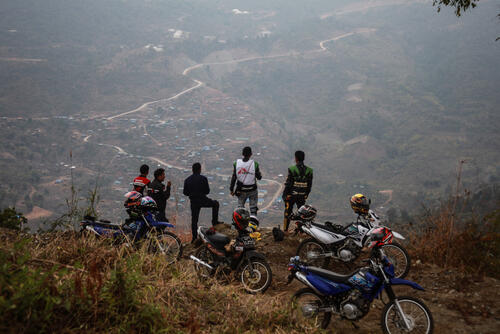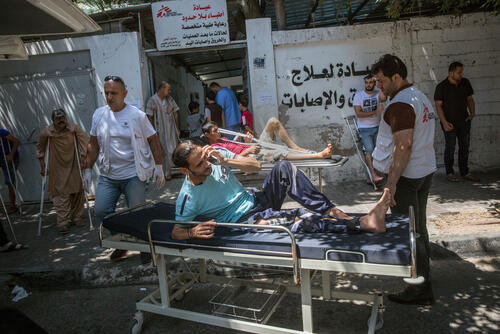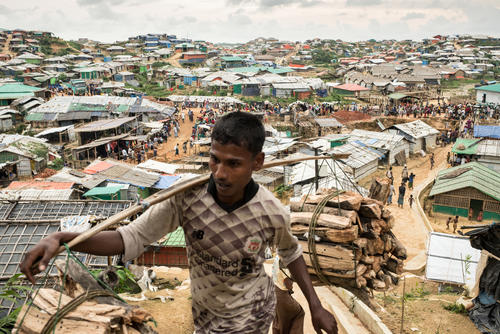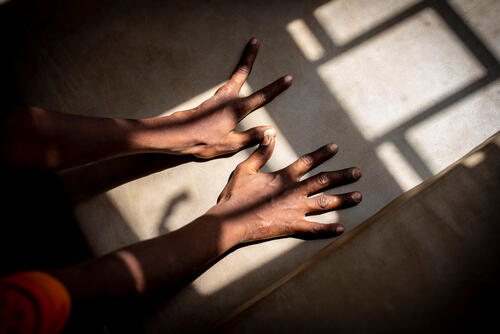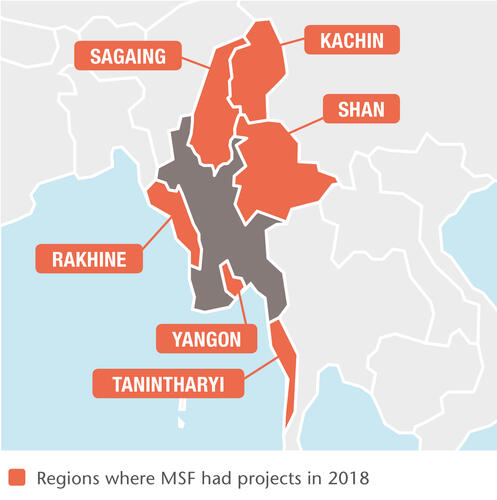
55,500
55,5
20,500
20,5
770
77

110
11
Very few humanitarian organisations were permitted access to northern Rakhine in Myanmar in 2018, and fewer still received authorisation to provide aid. Despite repeated requests, our team in Maungdaw was not allowed to resume medical activities, apart from some HIV counselling support in two government hospitals from July.
Our mobile teams based in Sittwe, central Rakhine, continued to offer primary healthcare and arrange emergency referrals for patients from all communities.
In 2018, we established a new mental health programme, in which MSF staff made weekly visits to camps in Pauktaw township, where Kaman and Rohingya Muslims have been effectively detained since 2012, when they were displaced by violence. These services were also provided in Aung Mingalar, a closed Muslim ghetto in Sittwe town, and ethnic Rakhine villages in Sittwe and Ponnagyun townships.
Plans to repatriate Rohingya refugees from Bangladesh in November did not proceed as none were willing to return to Myanmar. We remain concerned about the medical status and living conditions of those still in Rakhine, and in August reiterated our calls for the authorities to allow international aid organisations unfettered access and the freedom to conduct an independent needs assessment.
HIV care
Once the largest provider of HIV treatment in Myanmar, MSF continues to work closely with the Ministry of Health and Sports to transfer patients to the decentralised National AIDS Programme so they can receive care closer to home. This includes patients on treatment for co-infections such as hepatitis C, tuberculosis (TB) and multidrug-resistant TB (MDR-TB).
Patients were transferred from our projects in Yangon, Shan, Kachin and Dawei (Tanintharyi). In Yangon alone, we managed the transfer of 6,000 patients in 2018, enabling our teams to provide comprehensive care to our remaining patients and focus on health outreach, education and peer-to-peer counselling in an effort to prevent the spread of HIV.
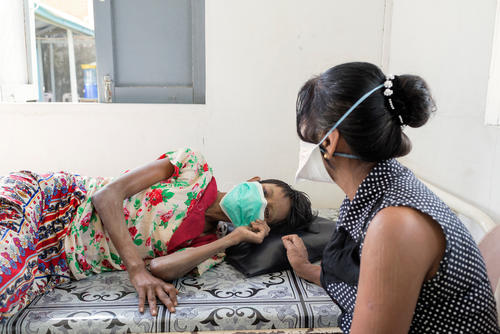
We targeted groups vulnerable to infection, such as the fishing community and migrant workers in Dawei, and sex workers, drug users and migrants in Shan and Kachin. In these two states, protracted conflict and mass displacement create additional barriers to obtaining medical care.
By December, we were still providing treatment to a total of 2,270 patients living with HIV in Dawei, where we have also been screening and treating hepatitis C since 2017. Almost 90 per cent of our patients co-infected with hepatitis C received treatment with highly effective direct-acting antivirals in 2018.
Basic healthcare in Naga
We have mobile teams in Naga, Sagaing, a remote, mountainous region in northern Myanmar, where communities have limited access to basic healthcare, especially during the rainy season, when some may be completely inaccessible for months.
Travelling up to eight hours by motorcycle to reach the most distant villages, often on hazardous muddy paths, our teams conducted almost 8,500 medical consultations in 2018, and supported the Ministry of Health with vaccination campaigns and TB detection and screening.



